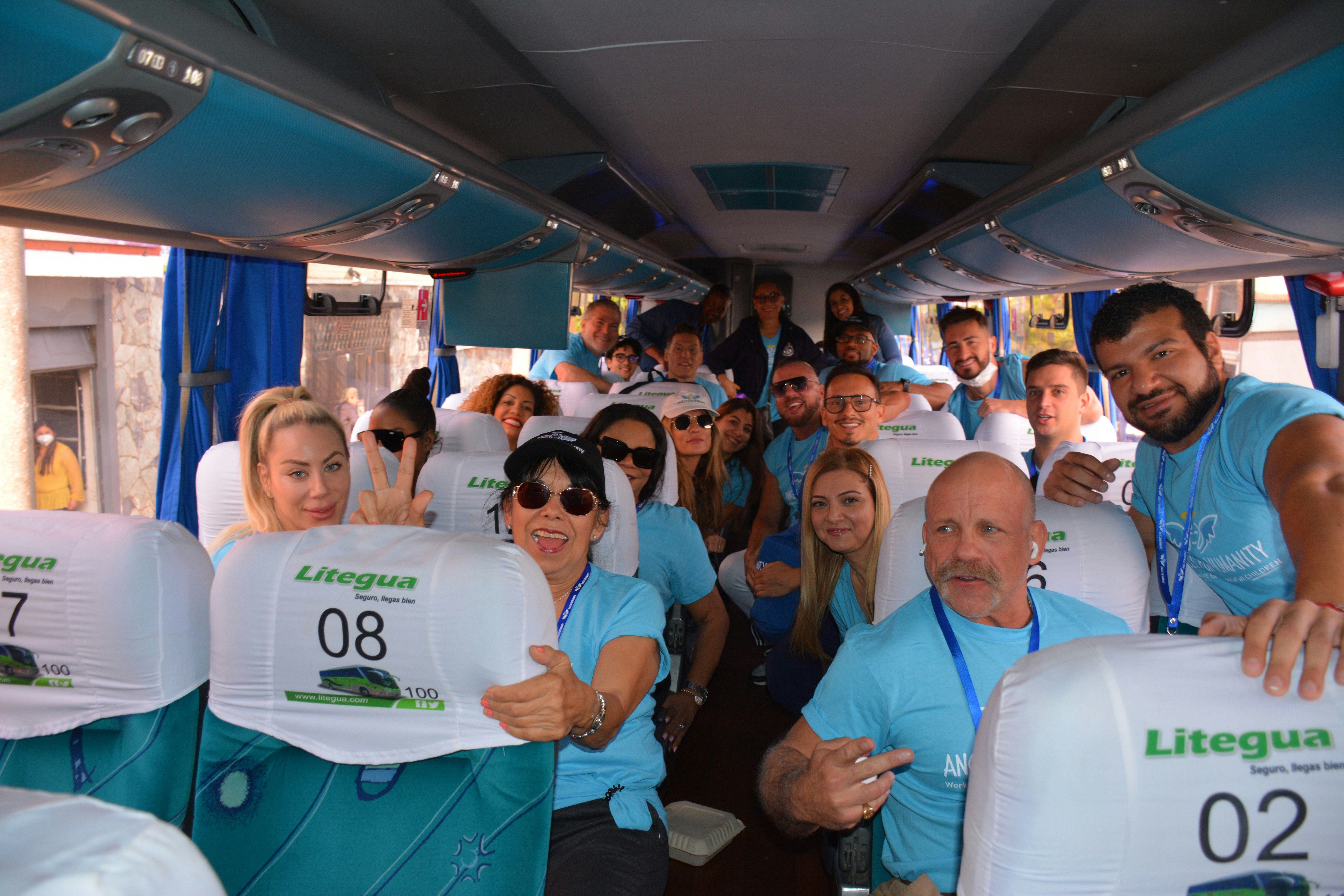10 Dec 2024
Fundraising Mistakes to Avoid for Successful Campaigns
Avoid common fundraising mistakes to elevate your campaigns and achieve meaningful impact. Learn the essential strategies that lead to successful and effective fundraising efforts.
10 Dec 2024
Avoid common fundraising mistakes to elevate your campaigns and achieve meaningful impact. Learn the essential strategies that lead to successful and effective fundraising efforts.
Whether you’re launching a grassroots initiative or coordinating a large-scale campaign, avoiding common mistakes can be the key to fundraising success. From setting goals to engaging donors, here’s a look at the most common pitfalls fundraisers face—and how you can sidestep them to create a successful campaign.
One of the first steps for a successful fundraiser is establishing a clear, measurable goal. A common mistake is to kick off a campaign without a concrete target, which often leads to vague messaging and unfocused efforts. Define exactly what you want to achieve—whether it’s raising a specific amount, gathering a certain number of donors, or increasing engagement by a percentage. By having a solid target, you can direct resources effectively and inspire potential donors to rally around your cause.
Effective fundraising relies on knowing your audience. Unfortunately, many fundraisers skip this step and miss out on valuable insights into what resonates with their supporters. Do your research: survey your audience, understand their interests, and tailor your messaging accordingly. Audience knowledge can make the difference between a message that falls flat and one that truly engages.
Without a realistic timeline, even the best fundraising campaign ideas can falter. Some fundraisers rush the planning phase, while others extend a campaign too long, losing momentum. Establish a timeline with clear stages and deadlines to keep your campaign on track and energise your supporters from start to finish.

One of the most common mistakes in fundraising is neglecting to tell a compelling story. A powerful story connects with supporters on an emotional level and clarifies why your cause matters. Crafting a story that is both engaging and authentic can be the key to winning over potential donors. Highlight the impact donations will have, share personal stories, and let your audience see the real-world effects of their support.
High-quality visuals and media can significantly boost the effectiveness of your campaign. Low-quality images or hastily created videos can lessen credibility, whereas well-crafted media engages viewers and supports your message. Consider professional visuals, clear graphics, and compelling videos that tell your story powerfully, inviting people to take action.
A smart approach is to organise campaigns, projects, or events into collections. This approach helps keep your supporters engaged, as they can easily find campaigns that align with specific interests. Grouping campaigns into collections enhances visibility and streamlines management, giving each initiative the attention it deserves.
Communication is the backbone of any successful fundraising campaign. Many fundraisers make the mistake of only contacting donors at the start and end of a campaign, neglecting updates along the way. Regular, open communication builds trust, keeps donors informed, and lets them know how their contributions are making a difference. Use updates to highlight campaign milestones, share stories of impact, and express gratitude for ongoing support.
Offering flexibility in donation options makes it easier for supporters to contribute. Some fundraisers limit their options to credit card payments, but today’s donors expect a range of choices.
For instance, offering payroll giving or enabling gift cards can provide greater convenience. By accommodating different donation methods, you open the door for more supporters to participate in ways that suit them best.
Recognition goes a long way in fundraising. It’s easy to focus on securing donations and overlook the importance of thanking supporters. Donor recognition shows appreciation, fosters loyalty, and increases the likelihood of continued support. Simple gestures, like a personalised thank-you message or a public acknowledgment, can leave a positive, lasting impression on your donors.

Social media is one of the most powerful tools for promoting fundraising campaigns, yet it’s often underused. Avoid limiting your social media engagement to sporadic posts; instead, establish a consistent posting schedule that shares updates, stories, and campaign milestones. Additionally, leverage social platforms to create a sense of community and connect with supporters on a personal level.
Email remains one of the most effective channels for engaging supporters. If your campaign isn’t using email to its full potential, you’re likely missing out on a large segment of potential donors. Use targeted emails to announce your campaign, provide updates, and share inspiring stories. With well-crafted emails, you can reach supporters directly and motivate them to engage more deeply with your cause.
Influencer partnerships can expand the reach of your campaign, especially if you’re targeting a specific demographic. Collaborating with influencers who align with your mission allows you to access their followers and spread your message more effectively. A well-chosen influencer can help raise awareness and credibility, bringing fresh eyes and enthusiastic support to your cause.
Data is one of your most powerful tools for achieving fundraiser success. Failing to track key metrics means you’re missing out on valuable insights that could improve your efforts. Regularly review data such as donation amounts, number of donors, and engagement rates to identify trends and areas for improvement. Leverage data to refine your strategy and make each campaign better than the last.
Once a campaign ends, many fundraisers simply move on without a proper evaluation. A post-campaign review can reveal what worked, what didn’t, and what can be improved for future campaigns. Take the time to assess your efforts, understand the strengths and weaknesses, and apply these insights to your next campaign for continued success.
Fundraising campaigns can be unpredictable, and unexpected challenges may arise. Whether it’s a shift in public interest or logistical hurdles, having a contingency plan can make all the difference. A flexible approach helps you adapt to changes quickly, minimising disruptions and keeping your campaign on course even in difficult situations.
A successful fundraising campaign requires careful planning, engagement, and continuous improvement. By avoiding these common mistakes, you can elevate your efforts, create more effective campaigns, and maximise the impact of every dollar raised. Whether you’re a seasoned fundraiser or just starting, steering clear of these pitfalls will help you achieve greater success, inspire more people, and ultimately make a lasting difference.
What should you avoid doing when fundraising?
Avoid launching a campaign without clear goals, skipping audience research, neglecting donor communication, and overlooking the importance of storytelling. These mistakes can lead to disengaged supporters, lacklustre results, and missed opportunities for growth. Focus on planning, engaging your audience, and tracking progress to avoid these pitfalls.
What is the biggest challenge in fundraising?
The biggest challenge is building and maintaining donor engagement. With many causes vying for attention, standing out and creating a compelling narrative that connects emotionally with potential donors is crucial. Maintaining momentum throughout the campaign, especially in longer efforts, can also be challenging without a clear strategy and consistent communication.
What is unethical fundraising?
Unethical fundraising involves deceptive practices, such as misleading donors about how funds will be used, applying undue pressure to donate, or failing to provide transparency regarding the impact of contributions. Ethical fundraising requires honesty, integrity, and clear communication about where the donations go and the positive changes they support.
How can poor donor communication impact fundraising success?
Neglecting regular updates and only reaching out to donors at the start and end of a campaign is common mistake. Consistent and transparent communication helps build trust, keeps donors informed, and highlights the impact of their contributions. Regular updates, including milestones and personal stories, can increase donor retention and overall engagement.

Discover how five Australian charities are restoring land and lives for World Environment Day. Learn how your workplace can support them through giving and volunteering.
Read more

23 Feb 2026
Stop fighting for budget and start building a business case. Discover how to align CSR with HR, Sales, and Marketing to unlock "hidden" impact and break the challenge of proving social value.
Read more